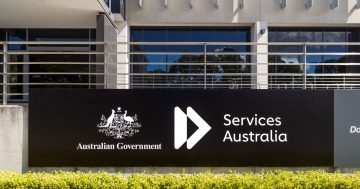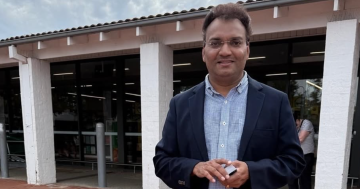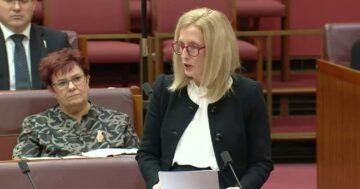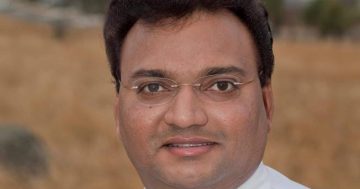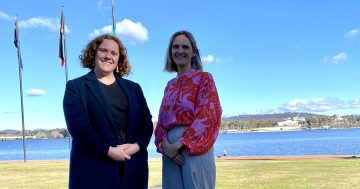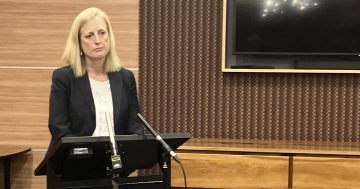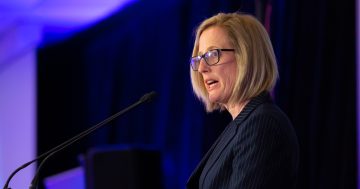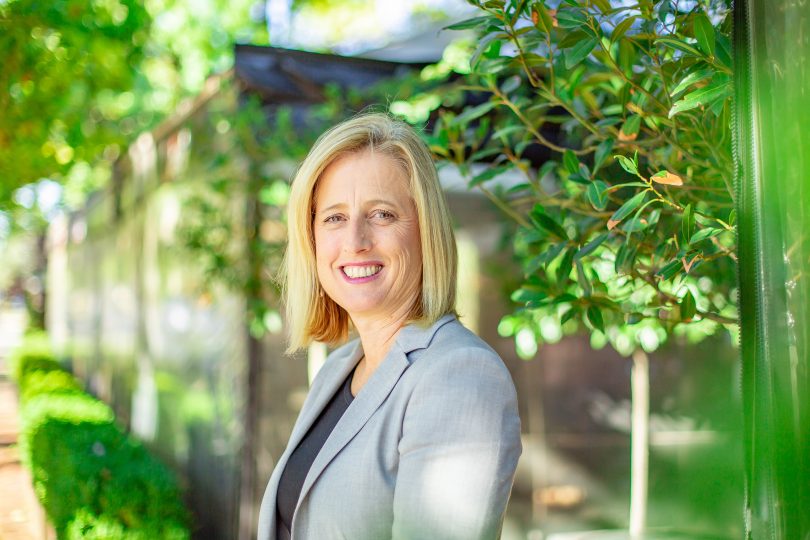
Katy Gallagher. Photo: George Tsotsos.
Katy Gallagher is an unlikely advocate for taking a year off politics, but on the eve of a Federal election campaign, she believes her enforced sabbatical has done her good.
The former ACT senator lost her seat in 2017 when she fell foul of Section 44 of the Constitution after referring herself to the High Court. She’s spent the year working on health policy for Calvary and while initially devastated at the result, she nevertheless says there’s been real value in “watching issues flow, observing how the government is operating, and taking some time to pick up different skills”.
Gallagher says that feedback from the Canberra community was a substantial motivating factor in her decision to re-nominate. “If I hadn’t had that I would have walked away. Everyone’s replaceable, I know I’m not the only one who can do the job. But Penny Wong said to me, ‘we might rail against the party, but who is around the table matters’.
“That resonated with me in terms of what I could do for my community. I love Canberra, that’s what’s motivated me from the get-go in ACT and Federal politics.”
Gallagher says she’d worked hard to attain senior positions in the Labor Caucus as manager of opposition business, a member of the Senate leadership team and a shadow cabinet member. “I felt that for the first time in a long time whether we were in government or opposition, Canberra would have a voice at that table.
“That matters when they’re talking about the public service and cutting jobs. Canberra is not high on people’s list of priorities, whereas a Canberran seat at that table can give us a real voice. The public service is our BHP. If you attack it, it’s not just the arms of government but a whole community.”
But how much of her agenda is Canberran and how much is Labor policy? Traditionally there’s precious little regard for Canberra, both because it’s a safe Labor electorate and there are so many votes to be won elsewhere by Canberra bashing. Would she be prepared, for example, to cross the floor as Gary Humphries famously did in the interests of the electorate?
The answer is yes, but with some qualifications. Gallagher says that if the Territory had voted against marriage equality, for example, she could not have followed suit. “I’ve agonised over this,” she says, “but my answer is that I would have been upfront about it. I wouldn’t have said I’d go with the community and then abstain. I couldn’t operate like that. But I am Canberran through and through – I think it would be unusual for me to disagree with the majority of the place that’s made me who I am.”
What about the risks of Labor incumbency, both Federally and locally? Surely that also means that nobody really gets independent, wholly Canberra-focused representation when the vote doesn’t change, term upon term?
Gallagher denies that’s the case, arguing that Labor’s commitment to a full policy agenda is often very good for the city’s economy. She also points to the $200 million funding promise for Stage 2 light rail, comparing it to the funding that made the Majura Parkway possible. Similar decisions, she says, will be made on the basis of whether they are nation-building infrastructure.
And, she says, complacency is dangerous. “I grew up on Hare-Clark campaigning where you’ve got ten voters, three out of ten will vote for Labor or Liberals, and you’ve got to find a way to persuade the other four to support you. It’s a marginal seat approach and that’s how I approach it in the Senate. I take nothing for granted.”
Gallagher considered putting her hand up for the new Lower House seat of Bean, but says her priority has been to serve where she’s most useful. “I come from the Assembly which tends to be a minority government. I have a lot of experience negotiating with cross benches which is key for the Senate.
“I have extensive legislative skills, and the Senate is where the amendments are made and where the debates have been had in recent years. If you want Canberra’s interest represented on Territory rights, and matters like marriage equality, your representation there matters.”
And on how it feels to get back into the political swing, she says, “So far, so good. I’m finding my mojo.”













